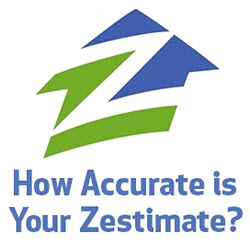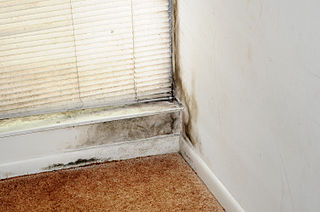
The Chicago suburban real estate market may still be slow overall but four suburban towns had the fastest-moving real estate markets in the first half of the year.
Using home sales data from the Chicago Association of Realtors through June of this year, Crain’s Chicago Business has just named the four hottest suburban markets in the first half of 2017.
Fastest-moving Chicago area suburban real estate markets – First half of 2017
- Beach Park
- Flossmoor
- Homewood
- Winthrop Harbor
Their survey covered all towns in Cook, DuPage, Lake and Will counties. Crain’s used three major indicators to determine these real estate leaders: the number of sales, the median home sale price and the time a listed home spends on the market.
Cities with less than 25 home sales in both the first half of 2017 and the first half of 2016 were not included.
Related: 3 Real Estate Myths – Prequalification, Down Payments & Closings
 Suburban Northeast Lake County
Suburban Northeast Lake County
The median price of a home in Winthrop Harbor rose by more than 17 percent in the first half of the year, to $158,250. In Beach Park, it’s up 14.5 percent, to $170,000. In Lake County overall, prices were up by 9.1%, so these towns are ahead of increases from neighboring communities.
Sales volume in Winthrop Harbor and Beach Park are also outpacing the rest of the county. In Lake County overall, the sales volume increase n the first half of 2017 was up 4.2%, whereas in Winthrop Harbor sales were up 20%, and in Beach Park, they were up 32%.
In Beach Park, the average market time for sale on the market in the first half of the year was 70 days, down from 156 last year. In Winthrop Harbor, it was down to 120 from 166 last year.
 South Suburban Cook County
South Suburban Cook County
The median price of a home in Flossmoor is $205,000, up 18.3% from 2016. In Homewood, the median home price rose to $148,000, which was up more than 24%. In south Cook County overall, prices are up 11.2 percent for the year.
For south Cook County, the overall sales volume increase compared to 2016 is up is 3.2%. In Flossmore the number of sales is up 25% compared to the first six months of 2016, and in Homewood, sales are up 13%.
In south Cook County, the average home time on the market dropped from 112 days last year to 103 this year. The time a house spends on the market in Flossmoor dropped from 162 days to 133. In Homewood, it declined only from 107 to 103 days.
The southern Cook County towns are finally experiencing a delayed recovery from the post real estate crash in the housing market. This area had not recovered as quickly as other areas have.
Related: Real Estate Tax Exemptions Cook County Chicago
 Chicago Suburban Area Overall
Chicago Suburban Area Overall
In the nine-county suburban area, growth in sales was slim and the growth in prices was the smallest seen since March 2016.
Some suburban Chicago towns saw their sales volume rise sharply in the first half of the year, but at the same time saw prices decline. These included Winnetka, Glencoe, Elmhurst, and Lisle.
“The inventory problem remains an important issue,” says Geoffrey J.D. Hewings, director of the Regional Economics Applications Laboratory at the University of Illinois.
Related: Low Inventory for Midpriced Suburban Chicago Homes Driving Up Prices
“Hopefully, now that the state has a budget, a recovering state economy will encourage more investment in housing – both new construction and investment by first-time buyers.”
Many homeowners, prospective buyers and people in the real estate and construction industries will be hoping for the same thing.
We hope to see a strong second half of 2016.
* Advertising Material: To the extent that the information in this post is interpreted as attorney advertising in accordance with the Illinois Rules of Professional Conduct or within the meaning of state bar rules from all other localities, this statement is made pursuant to those rules.
Specialties: Specialization claims are prohibited by Illinois Supreme Court Rules and we do not claim to be specialists. The content of this e-mail is organized and presented for the sole purpose of general information. None of the included content should be construed as legal advice. Viewing this e-mail or e-mailing the account holder does not create an attorney-client relationship. NOTICE: This page may be considered advertising material.
 The Law Offices of Lora Fausett P.C. provides real estate law services including loan modifications, buying and selling legal assistance, short sales and deeds in lieu, mortgage foreclosure defense, and more.
The Law Offices of Lora Fausett P.C. provides real estate law services including loan modifications, buying and selling legal assistance, short sales and deeds in lieu, mortgage foreclosure defense, and more.
Located in Glen Ellyn, Illinois and serving clients in DuPage, Cook, Kane, Will, and Kendall Counties.



 The new class action suit is on behalf of all of the millions of homeowners in Illinois. It claims homeowners should be asked their permission to publicly post financial data about their homes.
The new class action suit is on behalf of all of the millions of homeowners in Illinois. It claims homeowners should be asked their permission to publicly post financial data about their homes. Zillow maintains that its approximations are not actual appraisals, nor do they claim to be.
Zillow maintains that its approximations are not actual appraisals, nor do they claim to be. Did you know that mold disclosure forms are not required by Illinois law in real estate transactions?
Did you know that mold disclosure forms are not required by Illinois law in real estate transactions? Disclosure of lead paint is required by federal law
Disclosure of lead paint is required by federal law It is feared by many within the industry that these changes may make risky buyers appear more creditworthy than they actually are.
It is feared by many within the industry that these changes may make risky buyers appear more creditworthy than they actually are. In recent years there has been a growing trend of W-2 “
In recent years there has been a growing trend of W-2 “ IRS Issues Alert
IRS Issues Alert